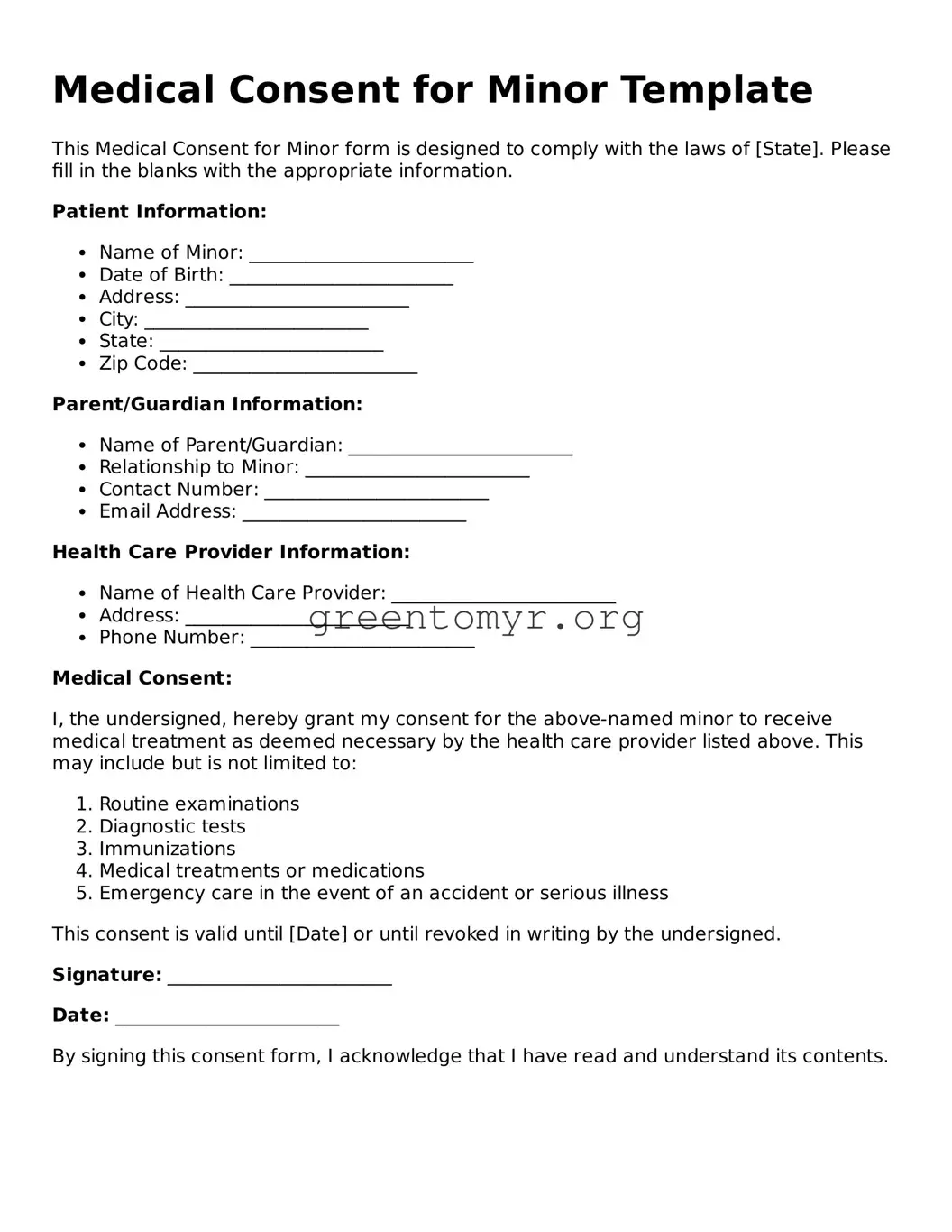Medical Consent for Minor Template
This Medical Consent for Minor form is designed to comply with the laws of [State]. Please fill in the blanks with the appropriate information.
Patient Information:
- Name of Minor: ________________________
- Date of Birth: ________________________
- Address: ________________________
- City: ________________________
- State: ________________________
- Zip Code: ________________________
Parent/Guardian Information:
- Name of Parent/Guardian: ________________________
- Relationship to Minor: ________________________
- Contact Number: ________________________
- Email Address: ________________________
Health Care Provider Information:
- Name of Health Care Provider: ________________________
- Address: ________________________
- Phone Number: ________________________
Medical Consent:
I, the undersigned, hereby grant my consent for the above-named minor to receive medical treatment as deemed necessary by the health care provider listed above. This may include but is not limited to:
- Routine examinations
- Diagnostic tests
- Immunizations
- Medical treatments or medications
- Emergency care in the event of an accident or serious illness
This consent is valid until [Date] or until revoked in writing by the undersigned.
Signature: ________________________
Date: ________________________
By signing this consent form, I acknowledge that I have read and understand its contents.
